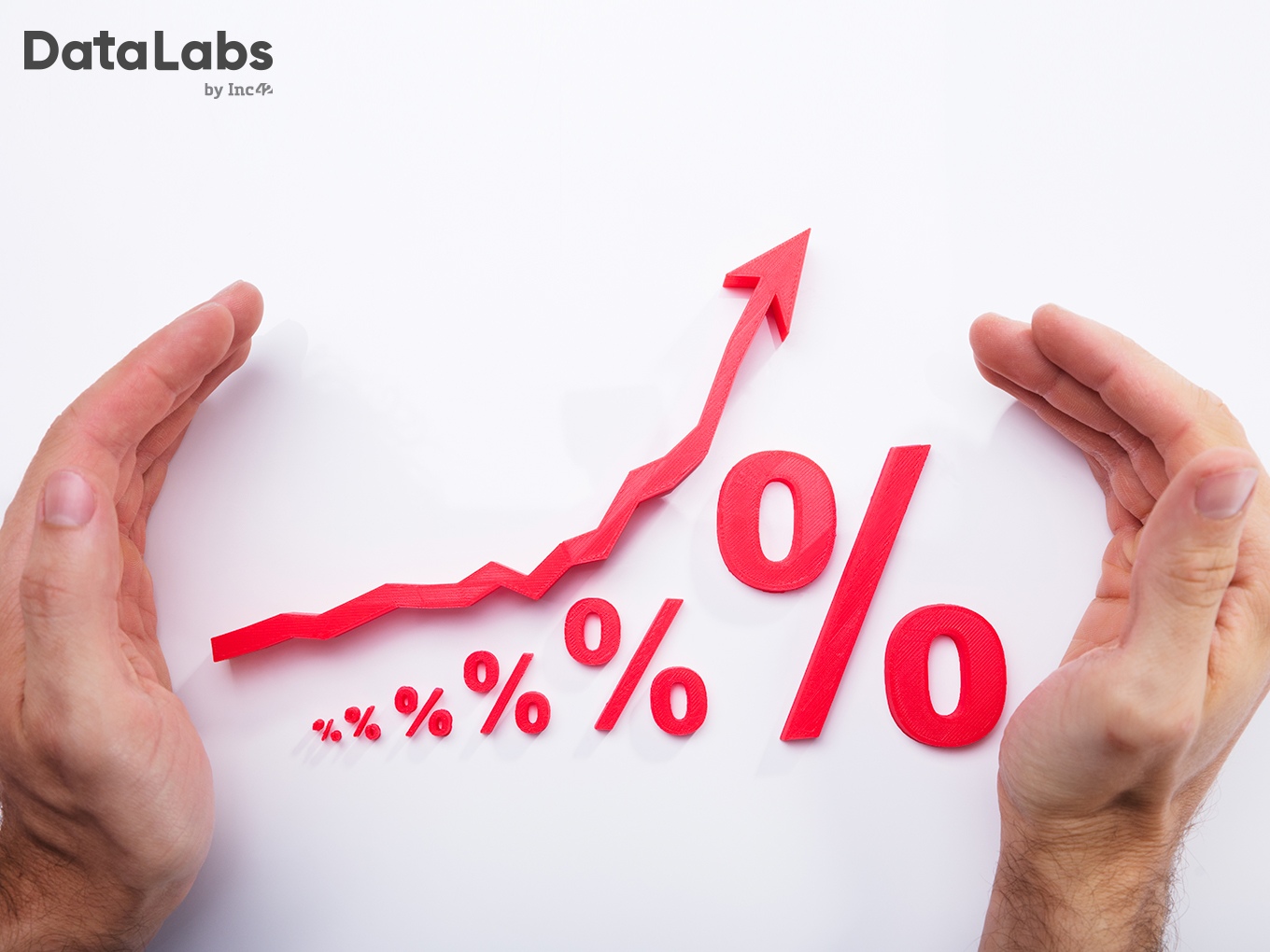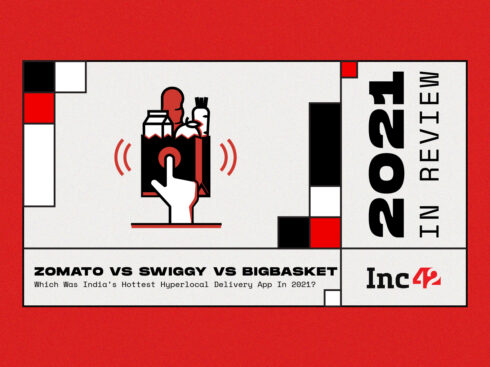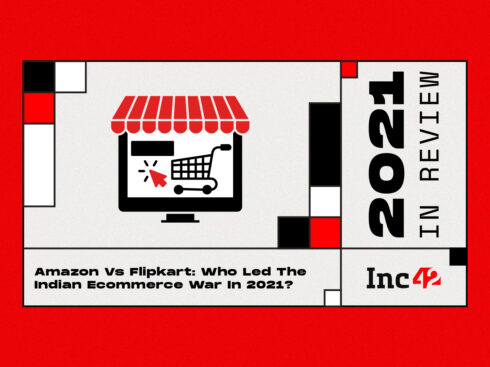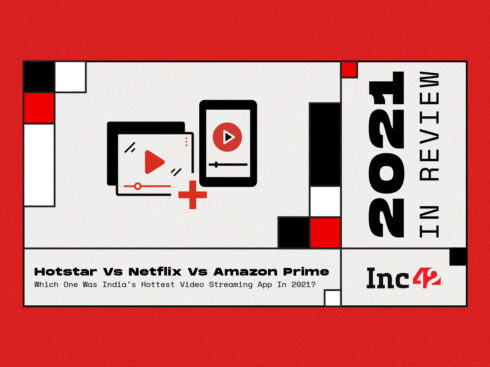SUMMARY
Falling household income and rising social security concerns have driven demand even lower than later year
Travel tech, hospitality, ecommerce and fintech have emerged as the suffering more with lowering inflation rate in the post corona world
Inflation rate has reached a four-month low but the big question is will this lift consumer demand or continue to decline with the demand?
The Covid-19 has already created a multi-faceted negative impact on Indian economy from job losses, to decreasing household income, to falling demand for many consumer products in the market and destroying businesses and livelihoods in the informal sector. While more support from the government can help businesses beat the economic slowdown, the situation is teetering on the edge for the low and middle-income class.
In the worst-case scenario, 104 Mn more people could fall below the poverty line in India. With 90% of India’s total 500 Mn workforce engaged in the informal sector without any minimum wages and social security, there is a huge threat for millions of families. The continuation of lockdown will create a “shadow economy” in the informal sector which is going to be the biggest threat for the Indian economy.
But over on the digital economy side, there will be a minor boom for certain sectors even among the losses and layoffs. Higher demand in certain sectors is a boon for digital startups, even as those in the travel, mobility, retail, food and restaurant sectors continue to struggle.
On May 13 2020, Prime Minister Narendra Modi announced a special economic and comprehensive package of INR 20 Lakh Cr equivalent to 10% of India’s GDP to revive Indian economy by pushing local production and supporting MSMEs. The more financial package from the government is expected to recover fallen demand and get the economy back on track. However, in the immediate aftermath of the lockdown, there is still a paucity of capital and this crunch will result in rising medium and long-term inflation.
ORDER YOUR COPY— COVID-19 STARTUP IMPACT REPORT, INDIA 2020Demand For Entertainment Drives Digital Consumers
The demand for online grocery delivery, OTT platforms and online communication apps have skyrocketed in the ongoing Covid-19 crisis and the countrywide lockdown. After the lockdown, the demand-supply equation will change drastically. Startups will face major challenges in the post-coronavirus world when people will look to get back to normal life.
OTT players witnessed a massive rise in the number of the subscriptions, the viewing time and the overall activity on the platforms. Even after the lockdown ends, the fear among consumers will mean that movie theatres, amusement parks, restaurants, live sports events and entertainment events will see less demand. OTT players are hoping that while there will be some decline in active users, the overall user base would have surged enough during the lockdown to lift their business metrics. The impact of inflation on the digital media and entertainment industry is expected to be moderate, considering that price-sensitivity is higher for subscription products. However, the variety of content and differentiation through original content, regional language content can still help OTT products command a higher price even after the lockdown.
More importantly, OTT players would create more tiers to upsell higher value subscriptions to those who have already purchased one in the past year.
The MAU on OTT platforms increased by 4% during the lockdown, according to Redseer, but the demand remained stagnant when it comes to TV channels, which indicates that more consumers are embracing digital platforms.
Grocery Startups Climb Up In Popularity
The online food and grocery retail currently account for just 0.2% of the overall retail market and according to pre-coronavirus estimates, and it was expected to touch $10.5 Bn, or 1.2% of the overall retail market by 2023. The numbers in grocery retail, however, may see a spike as predicted by many VC firms and industry leaders.
The countrywide lockdown and fear have led to new players joining the essentials delivery space. The likes of Zomato, Swiggy, Meesho, Quikr, ShopKirana.com, Paytm Mall, Ninjacart, Perpule, Uber, Domino’s and Shopclues all moved into the grocery delivery segment, making it easier for consumers to find products from nearby stores.
However, with last-mile delivery becoming a major bottleneck in the future, these platforms will look to invest in technology to solve these challenges. At the same time, food supply chain startups will be looking to help affected farmers maximise revenue by eliminating middlemen and taking up their roles.
According to reports, prices of agricultural produce have gone up by 10% to 20%, in Delhi, despite the government’s assurance that vehicles carrying essential items are exempt in the lockdown. As supply chain bottlenecks continue to persist, the cost of production will increase in a cyclical manner.
What Awaits Travel Tech And Mobility Sectors?
Travel tech and hospitality sectors have gone through the worst months in history as globally all travel more or less came to a halt. As consumers try to avoid public transportation and ride-hailing services, the demand for personal vehicles, especially two-wheelers, will increase.
With operations either completely put on hold or severely restricted, all last-mile connectivity and two-wheeler and four-wheeler startups incurred huge losses during the period and.
Going forward, many of these startups are now venturing into new segments or expecting to benefit from the situation for a brighter future ahead. Investments in this direction will increase the cost of providing services, especially as discounts will be a thing of the past for now.
Mobility startup fleets are now coming back on the road after two months of nationwide lockdown. A new expansion or entering a new segment might be necessary for medium-term sustainability for startups in the crisis. Bengaluru-based bike taxi platform Rapido, which had to halt all mobility operations, launched an on-demand person-to-person delivery service called Rapido Local. Similarly, Yulu Bikes is seeing customers use their services for longer duration and distances as the trust in multi-people transport falls.
On the retail side, the Covid-19 situation has led to automakers like BMW, Volkswagen, Honda Motor, Hyundai and Mercedes Benz moving to online sales and contactless delivery. The timely decline in oil prices will allow the government to offer additional relief as for every INR 2 per litre increase of excise duty on oil, banking on exports. This is likely to increase the cost of imports for companies, which will be passed on to the consumer in terms of pricing.
ORDER YOUR COPY— COVID-19 STARTUP IMPACT REPORT, INDIA 2020Edtech And Fitness Industry: Struggling With New Subscription In Post Corona World?
For other consumer-focused startups such as BYJU’S and Curefit, the pandemic has brought in new realities and growth expectations. BYJU’S and other edtech startups are now providing free access to learning material, virtual training programmes and more. This is largely seen as a habit-creation exercise After the Covid-19, the players in these sectors will start charging users and we will see a decrease in the user base, though the rising tide will expand the addressable base. Similarly, Curefit, which began with virtual live fitness classes for free during the lockdown, is pivoting to paid personal and group virtual training in an effort to monetise the huge demand for the free classes.
However, consumer behaviour will be totally different in the “new normal” life. Consumers will be more logical and rational in choosing channels of purchasing as well as the services and products. Impact of inflation will be dependent on the business model, spending type, availability, income and supply of products. Reviving demand in the market will be a challenge for the government and the failure, in this case, will directly impact startup players that pivoted their operations during Covid-19 and late last year.
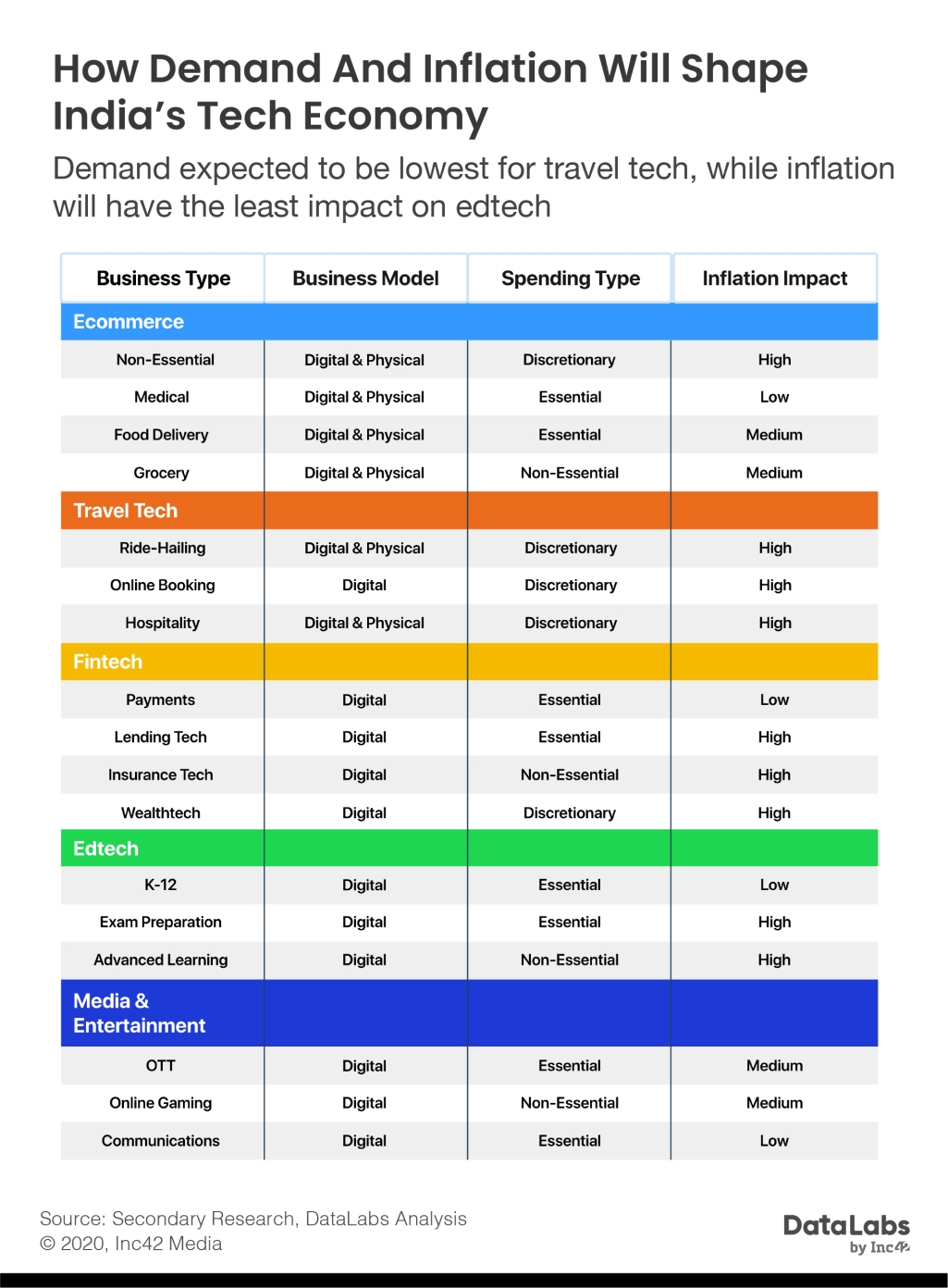
Households Suffering From Social Insecurity Due To Covid-19 Impact
There is no certainty about when relief will come for businesses, at least not until a vaccine comes into the picture. Lockdown is expected to continue in containment and red zones for the next 4-6 weeks, impacting more lives and jobs. Small businesses struggled to get business and conserve enough cash for the future. Startups like Treebo, Shuttl, Acko, Fabhotels forced to lay off employees and unicorns like Oyo forced to pay cut employees.
The household income of India was drastically impacted by the Covid-19 lockdown and economic recession. As per the latest data, nearly 46% of households witnessed a fall in income where this number was 9% on February 23. The more fiscal and monetary package declaration from the government can improve social security and increase the spending level of households.
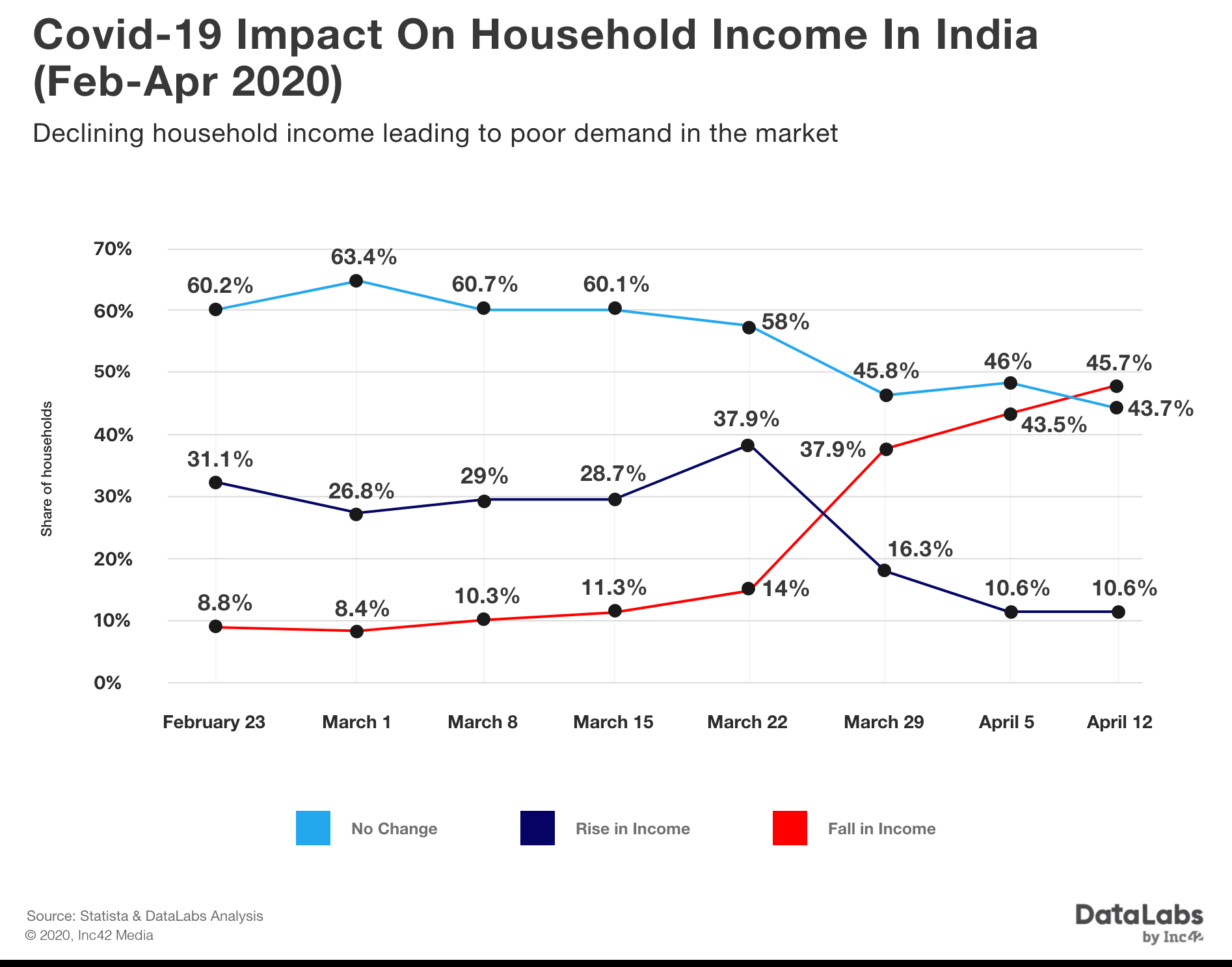
Reducing Inflation Rate Hitting More To Indian Economy
The countrywide lockdown is creating a challenge for India in reviving demand in the Indian economy. RBI expects inflation rate falling down to 2.4% in the Q4 of FY21. The government is trying to maintain the inflation rate within 4%. The further decrease in the inflation rate will indicate demand going down for products in the market.
India’s retail price inflation rate fell down to 5.91% YoY in March from 6.58% in February 2020 which is slightly below market expectations of 5.93% inflation rate in March 2020. Food and beverages sector faced the major hit from the Covid-19 outbreak. Due to poor demand, the inflation rate in vegetables reduced to 18.63% in March from 31.6% in February.
In April 2020, automakers reported zero domestic sales owing to nationwide lockdown in India. Even, gold sales decreased by 36% in Q1 2020 because of uncertainties, market volatility and logistical ban following lockdown.
The maintenance of cash flow in the market will be another challenge for the government. Financial assistance with extending the credit period and reduced interest rates will attract consumers to spend more in the market.
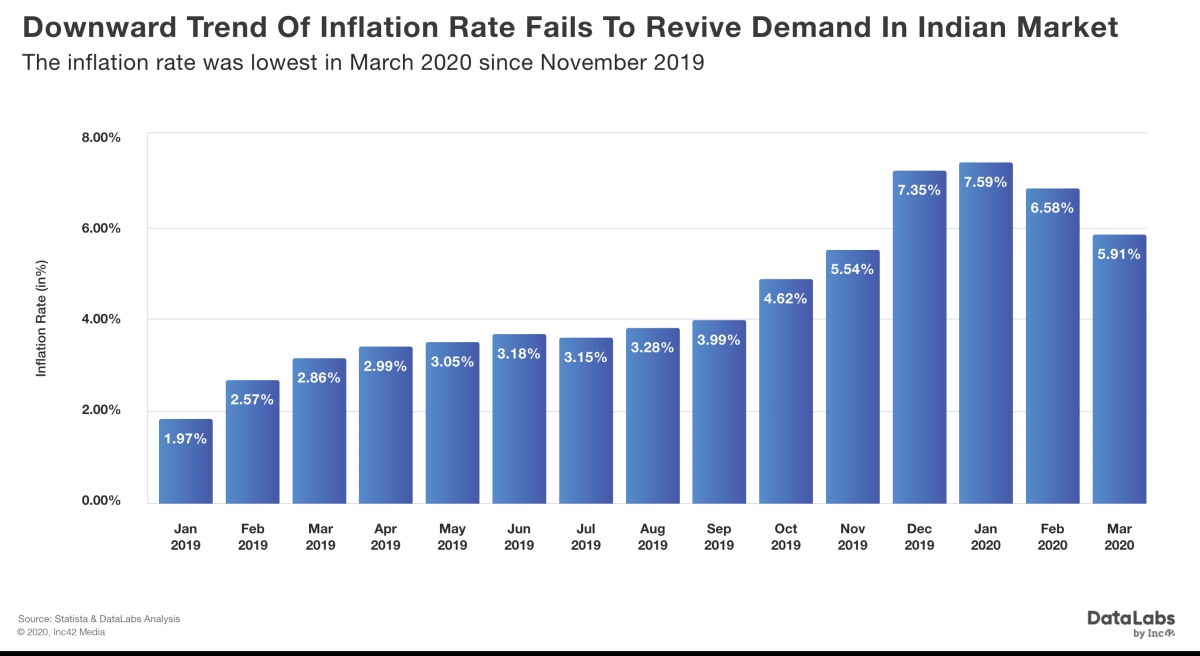
The Covid-19 acts as a force multiplier in transforming the industry and giving it a digital uplift. But 69% of brands are expected to reduce marketing and advertising costs in light of the economic and recent impact. With this, the cost of acquisition may not rise but the cost of service delivery will definitely go up. Secondly, many digital platforms will struggle to monetise in the new digital era as a large portion of their revenues come from advertisements. With the declining inflation rate and reducing advertising revenue, startups will suffer the most in the post-coronavirus world.
ORDER YOUR COPY— COVID-19 STARTUP IMPACT REPORT, INDIA 2020


